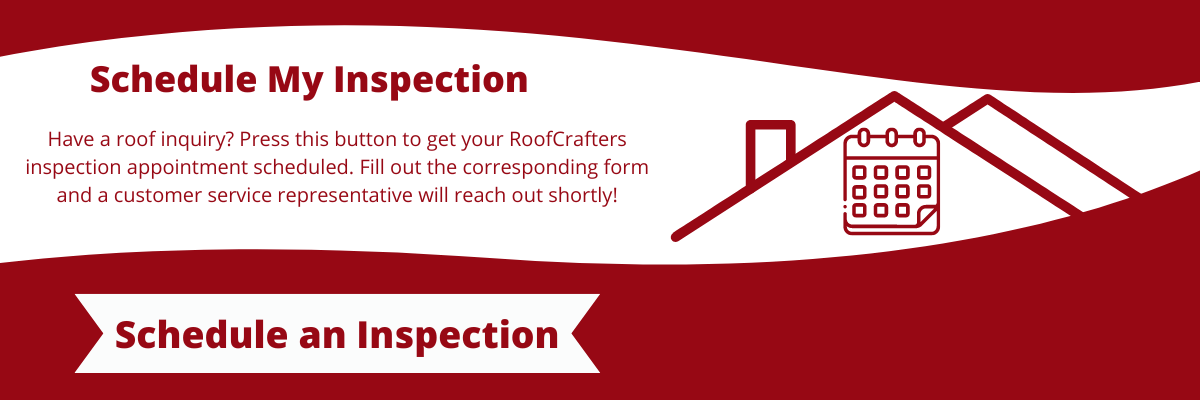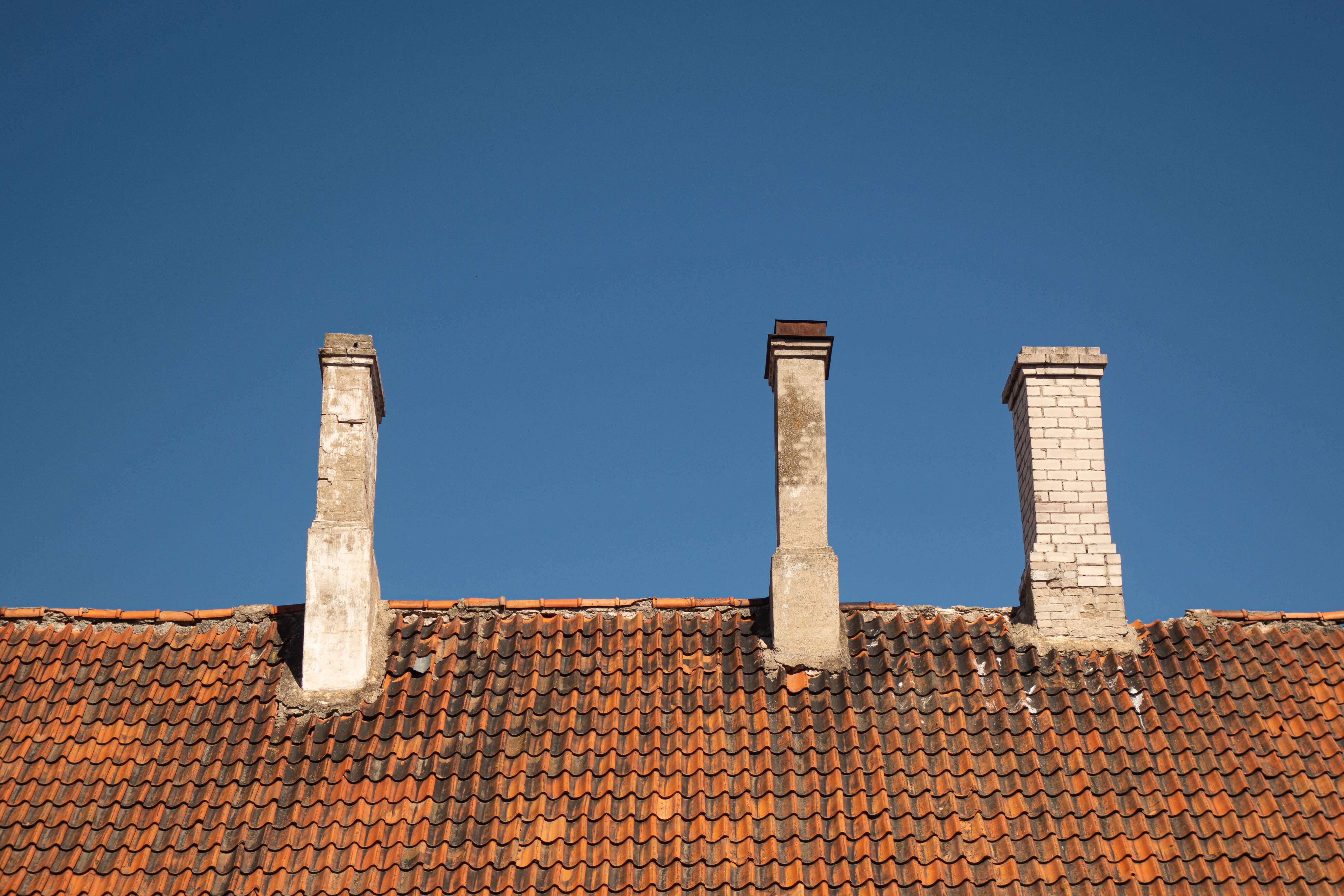
A leaking chimney can present a ton of problems for homeowners, ranging from structural damage to potential safety hazards. Understanding the underlying causes of chimney leaks and knowing how to effectively address them is crucial in maintaining not only the integrity of your chimney system and home but also making sure Santa has a surefire way of delivering your gifts!
All Holiday jokes aside, RoofCrafters knows that there are several factors that can contribute to chimney leaks, including damaged flashing, cracked masonry, faulty chimney caps, condensation, and poor chimney construction, and addressing a leaking chimney requires a professional approach.
So, if you’ve noticed a little more dew than you’re used to, or pesky critters in your house, you may have a chimney leak. Rest assured, you’re in the right place! In just a moment, you’ll learn why your chimney may be leaking, whether or not it’s a serious issue, and how to address the problem. Let’s get started, shall we?
Why Is My Chimney Leaking?
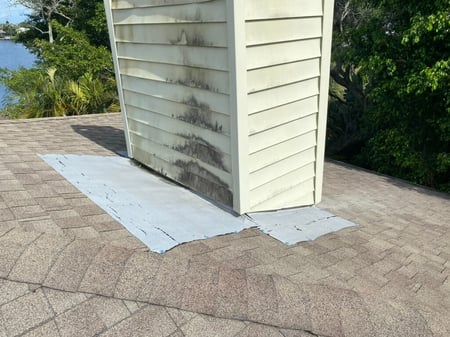
Let’s cut to the chase! A leaking chimney can be caused by several factors, including:
Damaged flashing: Flashing is the material (usually metal) installed around the base of the chimney where it meets the roof to prevent water from entering. If the flashing is damaged, loose, or improperly installed, it can allow water to seep into the chimney and cause leaks.
Cracked chimney crown: The chimney crown is the concrete slab at the top of the chimney. If it's cracked or deteriorating, water can penetrate through the cracks and enter the chimney.
Cracked chimney masonry: Over time, the mortar between the bricks or stones of the chimney can deteriorate, leading to cracks where water can enter.
Missing or damaged chimney cap: A chimney cap is a protective covering installed on top of the chimney to keep out rain, snow, debris, and animals. If the cap is missing or damaged, water can easily enter the chimney.
Condensation: In some cases, condensation can form inside the chimney due to temperature differentials between the inside and outside of the chimney. This moisture can drip down and cause leaks.
Poor chimney construction: If the chimney was not built properly or with quality materials, it may be more prone to leaks.
To determine the exact cause of the leak, it's best to have a professional chimney inspector or contractor evaluate the chimney. They can identify the source of the leak, recommend the necessary repairs to prevent further damage, and make sure Santa has a secure way of shimmying down during the holidays!
Is a Leaking Chimney a Serious Issue?
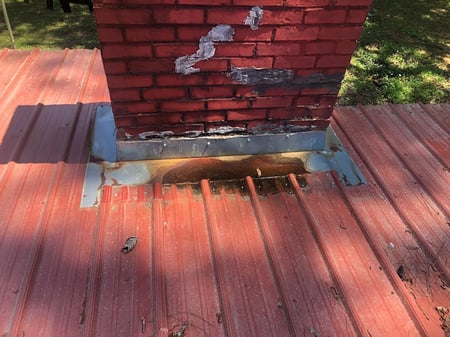
In short, yes, a leaking chimney can be a serious issue for several different reasons, which is why addressing your chimney issues as soon as you spot them is essential to prevent further damage and maintain the safety, comfort, and value of your home. Let’s go over the most serious consequences of a leaky chimney:
Structural damage: Water infiltration can cause damage to the chimney structure itself, including the masonry, mortar joints, and chimney crown. Over time, this damage can compromise the structural integrity of the chimney, leading to safety hazards.
Interior damage: Leaks can damage the interior of your home, including ceilings, walls, and floors, leading to costly repairs and potential health hazards such as mold and mildew growth.
Fire hazard: If water enters the chimney flue and comes into contact with the fireplace or wood stove, it can damage the chimney liner and potentially create a fire hazard.
Energy inefficiency: Leaks can allow cold air to enter your home during the winter months and warm air to escape during the summer, leading to increased energy bills as your heating and cooling systems work harder to maintain a comfortable indoor temperature.
Decreased property value: A leaking chimney can detract from the overall value and aesthetics of your home, making it less attractive to potential buyers if you decide to sell in the future.
How Do I Address My Leaky Chimney?
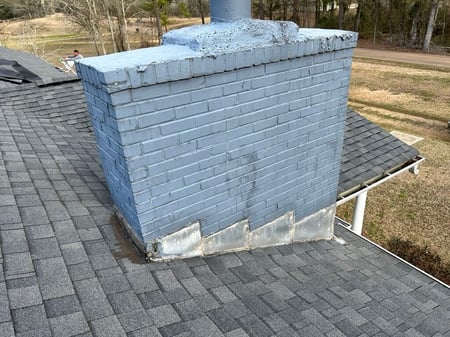
Addressing a leaky chimney typically involves several steps, and it's often best to hire a professional chimney inspector or contractor to ensure the issue is properly diagnosed and repaired. However, you can start by carefully examining the exterior of the chimney to identify any obvious signs of damage, such as cracked masonry, deteriorated flashing, or missing chimney caps. Also, check the interior of your home for signs of water damage near the chimney, such as water stains on ceilings or walls.
If the flashing around the base of the chimney is damaged, loose, or improperly installed, it will need to be repaired or replaced. This may involve removing the old flashing, repairing any underlying damage to the roof or chimney, and installing new flashing properly. If you spot any cracks in the chimney crown or masonry, they should be repaired promptly to prevent water from entering the chimney. This may involve applying a waterproof sealant to the cracks or replacing damaged bricks or mortar joints.
If your chimney cap is missing or damaged, installing a new one or replacing the existing cap can help prevent water, debris, and animals from entering the chimney. If the culprit is condensation that’s contributing to the leak, measures such as improving ventilation, installing a chimney liner, or insulating the chimney may be necessary to reduce moisture buildup.
In order to prevent future leaks, it's important to schedule regular chimney inspections and maintenance to identify and address any issues before they become major problems. Remember that chimney repair can be complex and potentially dangerous, so it's best to leave it to professionals with the necessary expertise and equipment!
Safeguarding Your Home from Chimney Leaks
All in all, a leaking chimney can stem from various issues such as damaged flashing, cracked chimney crowns, deteriorated masonry, or inadequate chimney caps. Addressing a leaky chimney promptly is crucial to prevent structural damage, interior water damage, fire hazards, energy inefficiency, and decreased property value.
As you now know, to address a leaky chimney effectively, a thorough inspection by a professional chimney inspector or contractor is recommended. Repairing damaged flashing, chimney crowns, and masonry, as well as installing or replacing chimney caps, are common solutions. Additionally, addressing condensation issues and scheduling regular maintenance can help prevent future leaks and ensure the chimney's safety and functionality.
By identifying and addressing the underlying causes of chimney leaks promptly and with the appropriate expertise, you can protect your investment, maintain your property value, and ensure the safety and comfort of your home. If you suspect you have a leaky chimney but you're not sure where to start, be sure to hit the “Schedule an Inspection” button down below, and one of our experts will guide you in the right direction!
My name is David Toth and I am the lead estimator in North Florida with RoofCrafters Roofing. Originally from New Brunswick, I have called Florida home for the past 47 years. I enjoy cooking along with traveling to different historical areas in Florida when I have free time.



